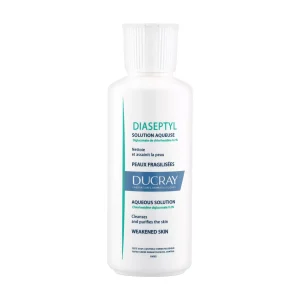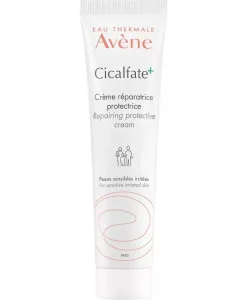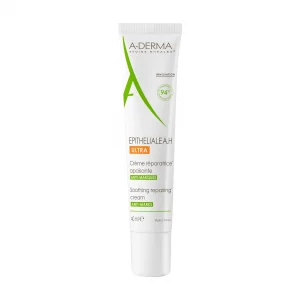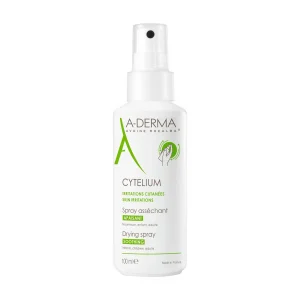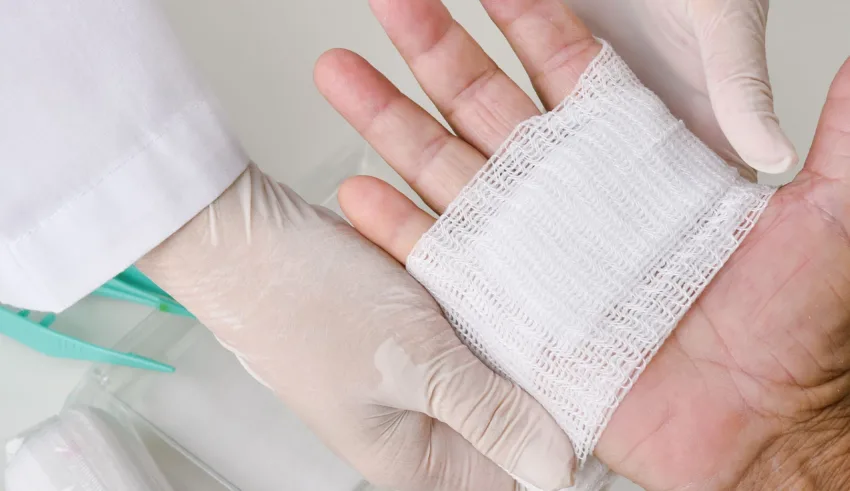
In the complex symphony of our biological orchestra, wound healing plays an essential role. Yet an unexpected player hides in the shadows, waiting to take center stage: stress. Beyond its reputation as a destroyer of our mental and emotional well-being, stress has a mysterious influence on the fine art of wound healing. In this article and in collaboration with the dermatologist Dr. Susana Borba, we will be discussing the world of stress and wound healing, revealing a story that challenges common assumptions and illuminates the complexities of rejuvenation.
How can stress influence wound healing?
According to Dr. Susana Borba, psychological factors such as stress and anxiety can indeed influence the wound-healing process.
Dr. Susana Borba lists how psychological factors can influence this healing process:
- Delayed healing: Stress activates the body’s fight-or-flight response, which can divert resources from healing functions. This can lead to slower tissue repair and regeneration, resulting in longer recovery times.
- Increased inflammation: Stress and anxiety can trigger an exaggerated inflammatory response. Although inflammation is a natural part of the healing process, chronic stress can prolong and intensify the inflammatory phase. Excessive inflammation can impede wound healing and contribute to tissue damage.
- Impaired immune function: Chronic stress and anxiety can weaken the immune system, increasing vulnerability to infection. Secondary wound infections can further impede the healing process.
- Alteration of the circulatory system: Stress can constrict blood vessels, reducing blood flow to the wound area. This reduces the supply of oxygen and essential nutrients needed for wound healing.
- Behavioral factors: Stress and anxiety can also influence an individual’s behavior. For example, people under high levels of stress may adopt unhealthy coping mechanisms such as smoking, excessive alcohol consumption, or poor diet. These behaviors can compromise the healing process.
How can stress be managed to prevent delayed healing?
Managing stress to prevent delayed healing involves a combination of strategies to manage and reduce stress levels. By taking a holistic approach that addresses both the physical and emotional aspects of stress, you can promote a healthier healing environment.
Here are some effective ways to combat stress and promote rapid wound healing:
1- Practice relaxation techniques: Practice relaxation techniques such as deep breathing, and progressive muscle relaxation. These techniques can help activate your body’s relaxation response, reduce stress hormones and promote a sense of calm.
2- Mindfulness and meditation: Incorporate mindfulness meditation into your daily routine. Mindfulness can help you stay present, manage negative thoughts, and reduce the impact of stress on your body.
3- Stay active: Engage in regular physical activity or exercise. Physical activity releases endorphins, which are natural mood enhancers. Choose activities you enjoy, such as walking, swimming, yoga, or dancing.
4- A healthy diet: Maintain a balanced, nutritious diet, rich in vitamins, minerals, and antioxidants. Good nutrition boosts the immune system and general well-being, which in turn promotes wound healing.
5- Get enough sleep: Make it a priority to get enough sleep every night. Sleep is essential for physical and mental recovery, and a well-rested body is better equipped to deal with stress.
6- Social support: Keep in touch with friends, family, and support groups. Sharing your feelings and concerns can help alleviate stress and create a sense of belonging.
7- Limit stressors: Identify and manage the sources of stress in your life. Set limits, prioritize tasks, and delegate where possible to reduce feelings of overwhelm.
8- Time management: Break tasks down into manageable steps and create a realistic timetable. Effective time management can reduce stress and help you feel more in control.
9- Seek professional help: If stress becomes overwhelming or unmanageable, consider seeking help from a therapist, counselor, or healthcare professional. They can guide you and help you develop coping strategies.
10- Engage in relaxing activities: Engage in activities that bring you joy and relaxation, whether it’s reading, gardening, listening to music, or spending time in nature.
11- Avoid unhealthy coping mechanisms: Avoid turning to unhealthy habits such as excessive drinking, smoking, or overeating to cope with stress, as these can have a negative impact on recovery.
12- Set realistic expectations: Recognize that healing takes time. Set realistic expectations for your recovery and be patient with yourself.
By combating stress through a combination of these strategies, you can create an environment more conducive to wound healing.
What’s the best way to handle wounds?
Wound treatment depends on the type, severity, and underlying health of the individual. Here are some general guidelines for treating different types of wounds:
Minor cuts and scrapes:
1- Clean the wound: Clean your wound of dirt, bacteria, and visible particles with a disinfectant spray to speed up the healing process.
Our pick:
Ducray Diaseptyl Spray
2- Apply wound cream: The application of a wound cream is very important to support and accelerate the natural healing of minor superficial wounds such as cuts, scrapes, and abrasions.
Our picks:
For non-oozing wounds:
Eau Thermale Avène Cicalfate+ Restorative Protective Cream
A-Derma Epitheliale A.H Ultra Soothing Repairing Cream
For oozing wounds:
If your wound is oozing, we recommend drying it with the following A-Derma spray, which drains and decongests oozing skin. It also soothes, calms, and softens the skin in the event of irritation.
A-Derma Cytelium Drying Spray
Once your wound is dry, you can follow up with the creams mentioned above.
3- Cover the wound: Use a sterile adhesive dressing or sterile gauze pad to protect the wound and keep it clean.
Deep or wide wounds, or puncture wounds:
- Control bleeding: Apply light pressure with a clean cloth to stop the bleeding. If bleeding is heavy or does not stop, consult a doctor.
- Clean the wound.
- Apply a wound cream.
- Cover the wound: Apply sterile gauze and adhesive tape to protect the wound and promote healing.
Conclusion
In the complex story of healing, stress plays an important role – sometimes slowing you down, but also motivating you to find balance. This journey into how stress affects wound healing reminds you that it’s just as important to take care of your mind as your body.
Consider stress as a unique character in the drama of healing. When you learn to manage it through relaxation and self-care, you give yourself a better chance of healing faster and more completely. So embrace the link between stress and wound healing, transforming it into a positive force that guides you to a healthier, happier ending.
Last Updated on February 16, 2024
